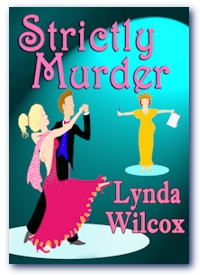What's a specific piece of the fiction-writing craft at which you can see another author doing well, and that you would like to imitate or perfect for your own writing?
Lynda Wilcox, writer of mysteries and children's books, said:
Writing traditional British whodunits, I yearn for the day when I can emulate my heroine, the great Agatha Christie, at writing pithy character description. While I would struggle with eye and hair colour, height, weight, and apparel, Mrs Christie disdains them all and gives us a vivid picture of the Countess Vera Rossakoff in one wonderful sentence:
"Without the least warning the door flew open and a whirlwind in human form invaded our privacy, bringing with her a swirl of sables (it was as cold as only an English June day can be) and a hat rampant with slaughtered ospreys."
www.lyndawilcox.com/
Amelia Smith, fantasy and historical fiction writer, cites complexity of plot as something she admires.
The example that jumped out at me was Connie Willis's two-book series, Blackout and All Clear. The books are about history students from the future who go back to WW II London and try to do their research without disrupting the time line... mostly. She weaves together multiple narratives and story lines so well, complete with jumps in time. I wish I could put together such a complex story so effectively.http://ameliasmith.net/
Amy Corwin, author of historical romances and mysteries says,
Most of my novels include a mystery of some sort, even if it is a simplistic one. Author Christopher Fowler has really perfected mysteries with unusual events, strange historic details, and complex plots that seem to take crazy, unrelated clues and make them all mesh into a brilliant conclusion. I’m always working to make my mysteries richer and more complex, and I don’t know if I’ll ever reach the pinnacle Fowler has reached with his Bryant and May mysteries, but I certainly hope to give him a run for his money!"http://www.amycorwin.com
Writer of gay shifter romances Shelley Grayson says:
I struggle with setting and trying to create the right atmosphere for a scene, because it's easier for me to focus on dialogue and what's in a character's head. Both Stephen King and Robert McCammon are masters at grounding a scene in ordinary but specific details, so when the werewolves or killer clowns show up, the readers are hooked and willing to go along with it. I often reread passages from their books to absorb how they've done it and try to find a better balance in my own stories.shelleygrayson.com
Romance writer Jessa Jacobs told me:
The areas I feel I could most improve at the moment would be humor and poetry of language. Selecting just the right combination of words to evoke an exact emotion in the reader is an exercise in patience, but I'm always working on it. Thinking back to the last book that absolutely shattered me, not only for the story but because I utterly despair of writing that well, I came up with author Jodi Picoult as someone to study.www.jessajacobs.com
Fantasy writer Daniel Marvello has been impressed with a recent read:
Chasing Arizona by Ken Lamberton is similar in some ways to Bill Bryson's work (although not quite as humorous), and chronicles Lamberton's "year-long joyride through Arizona." Lamberton's book captivated me immediately due to the author's skilled use of language and, in particular, his powerful command of verbs. As a result, his words paint incredibly vivid images on the canvas of your mind. I'm not exaggerating when I say that some passages nearly brought tears to my eyes because they were so skillfully rendered.http://www.danielrmarvello.com/
Lamberton has already started influencing my own writing. I'm consciously trying to do better about using verbs in place of nouns and adjectives coupled with forms of "to be." The technique increases the sense of immediacy and movement and should improve the pace and clarity of my writing.
New writer of comedies and romances Victoria Leybourne says:
My heart belongs to the humorous writing styles of Terry Pratchett, Douglas Adams and PG Wodehouse. With those guys, every paragraph - if not every sentence - is a neat, unpretentious little parcel of joy. They're consistently laugh-out-loud funny without appearing to really work at it. That's the dream for me!http://oppositeofpopular.com
Thank you to all of them for participating in this, the last of my posts this year on the writing craft, honoring NaNoWriMo.
Support indie authors and check out these writers' books at Amazon or your favorite e-book retailer. And jump in below, in comments, with your own answer to my question.


Two points of interest here. 1. There seems to be very little interest in characterization and how you develop believable, living characters. Right now, that's my primary interest when I read. 2. So very glad to see that someone else appreciates Ken Lamberton. Some of his books are based on his prison experiences -- beautifully written, and enhanced by exquisite drawings of the wildlife he was able to observe through the prison fence.
ReplyDeleteThanks for commenting! I'm sure all these writers care a great deal about characters, too...but I only let people pick one thing in their answer. :)
Delete